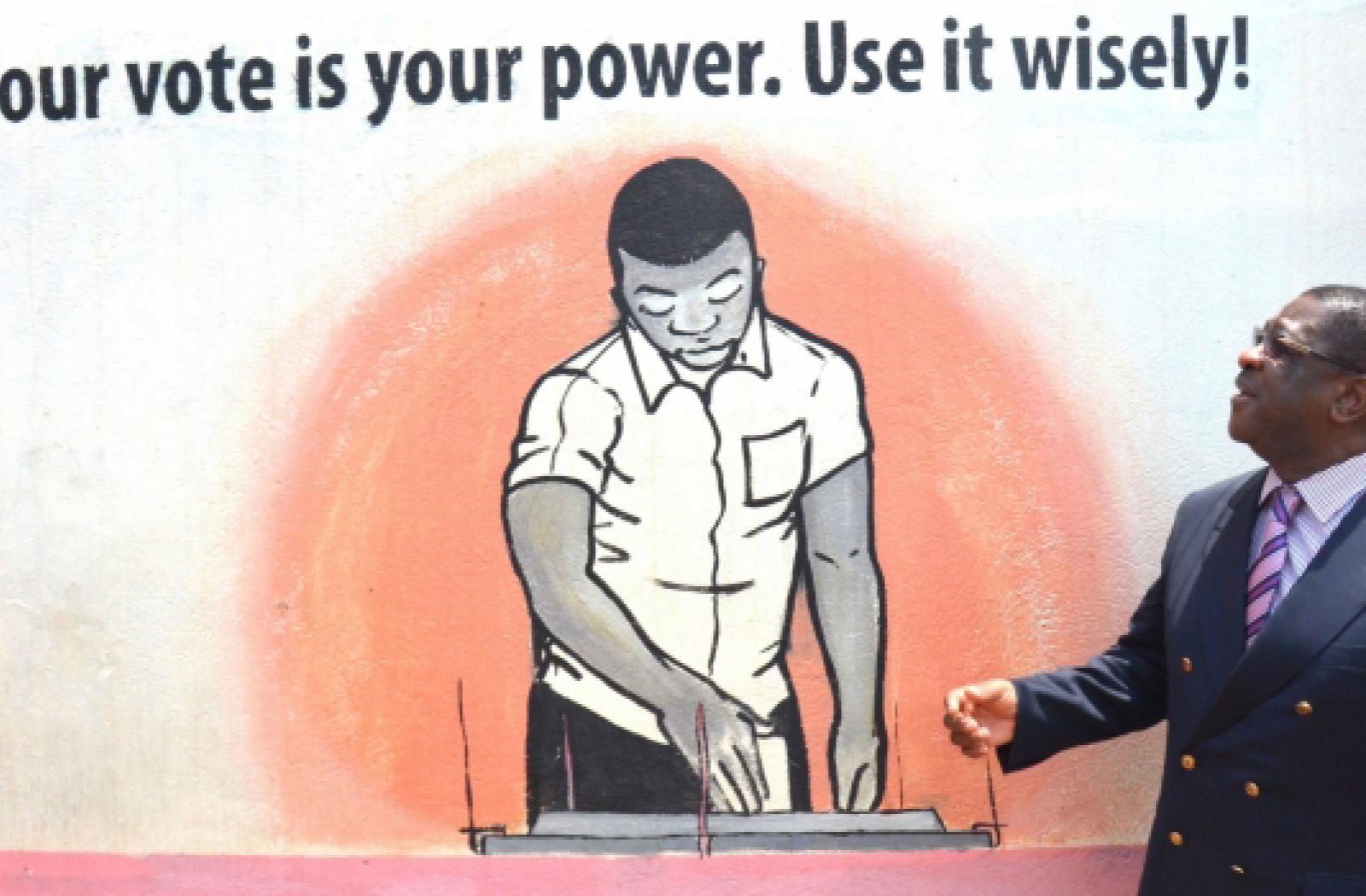A team of independent observers drawn from across the Commonwealth arrived in Uganda on 11 February to observe the coming elections.

In less than four days, Ugandans will be asked to choose a President and a Parliament. More than 15 million people are registered to vote in the 18 February elections – the third such polls since the re-introduction of multiparty politics in 2005.
A team of independent observers drawn from across the Commonwealth arrived in the country on 11 February to observe the elections. The 13-member group has since been meeting with the Electoral Commission and local stakeholders including citizen observers, human rights organisations and women’s groups.
“We want to get a clear picture of the electoral environment and the best way to do this is speak to a variety of organisations and individuals, including those who bear responsibility for delivering the election and those who bear witness,” says the Commonwealth Observer Group’s Vice-Chair, Amos Wako, a Senator in Kenya’s Parliament and former Attorney-General.
“Each observer brings a different perspective. Some of us are politicians, while others have served as election commissioners or worked in the media or been human rights or youth advocates. Our role is to scrutinise the entire election process and to take a view on whether it is being conducted to the international and regional standards to which Uganda has committed, including its own laws.”
When Ugandans enter their polling station on election day, they will be asked to choose between one of eight Presidential candidates vying for office, including the incumbent, President Yoweri Museveni. In order to win the ballot outright, a candidate must achieve at least 50% of the ballot plus one vote, or else face a second round.
Voters will also select a local representative to become a member of Uganda’s tenth Parliament. In total, the Parliament is made up of 290 constituencies, as well as an allocation of 112 parliamentary seats for women and a small number of seats set aside for youth representatives and persons with disabilities, among other interest groups.
According to Crispy Kaheru, Co-ordinator of the Citizens’ Coalition for Electoral Democracy in Uganda, one of the civic organisations invited to address the Commonwealth observers on 13 February on its work to educate voters, both local and international observers are making a positive contribution to the strengthening of democracy in Uganda.
“Election observers play an important role with respect to detecting and deterring any electoral malpractices,” says Mr Kaheru. “The recommendations that are offered by different observer groups – local and international – have formed the basis for interventions to correct or make good our electoral system," he says.
Irene Ovongi Odida, Executive Director of the Uganda Association of Women Lawyers, another of the groups who earlier briefed the Commonwealth observers, says: “In an election you want voters to have an informed choice, and for that to happen you have to have information and fair management.
“The value that observers bring is that they put a spotlight on the process. Because of that, the institutions that have a role to play, either directly in managing the election or indirectly, for example providing security, know they have to fulfill their mandate.”
Following its stakeholder consultations, which conclude on 15 February, the Commonwealth Observer Group will be deployed across Uganda in teams to observe polling, counting and results processes. The group, which is led by former President of Nigeria Olusegun Obasanjo, is expected to issue an interim statement on 20 February.
Notes to Editors
Receive the latest news and announcements from the Commonwealth Observer Group, and share our photos free-of-charge, by visiting: www.thecommonwealth.org/ugandaelection2016
Social Media
Join the conversation online at #CommonwealthElections #UgandaDecides
Follow us: @commonwealthsec
"Election observers have an important role to play" @ckaheru https://t.co/BrjZylq8SE #UgandaDecides #Commonwealth pic.twitter.com/sdRDCkrRwo
— Will Henley (@will_henley) February 14, 2016
#Commonwealth observers are hearing from a range of organisations about preparations for polling day #UgandaDecides pic.twitter.com/2MwT8MVhFo
— The Commonwealth (@commonwealthsec) February 14, 2016
Observers from the #Commonwealth met with Uganda's Electoral Commission yesterday. #UgandaDecides #Uganda2016 pic.twitter.com/T5uPogONqF
— The Commonwealth (@commonwealthsec) February 14, 2016
